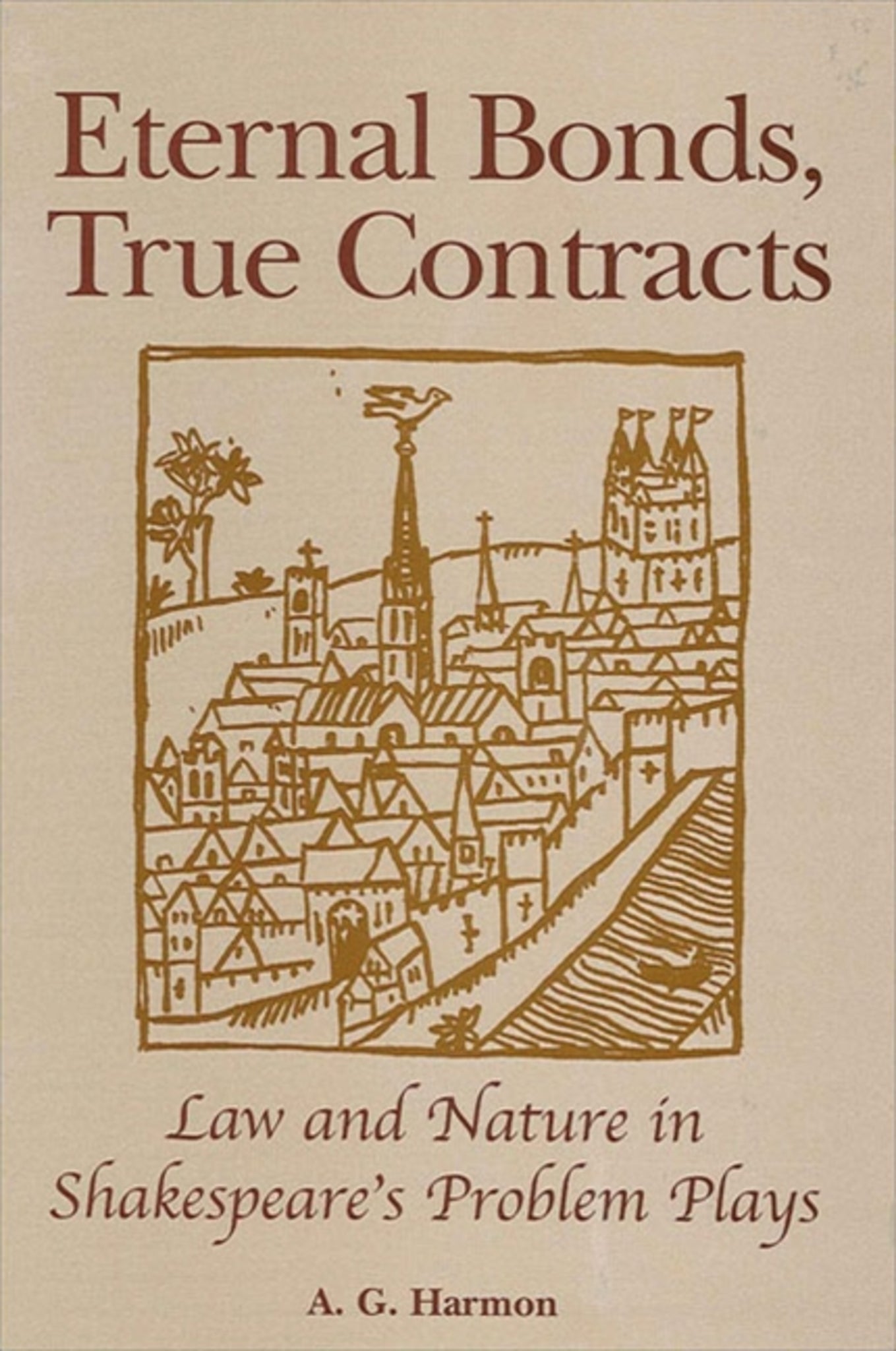We're sorry. An error has occurred
Please cancel or retry.
Eternal Bonds, True Contracts

Some error occured while loading the Quick View. Please close the Quick View and try reloading the page.
Couldn't load pickup availability
- Format:
-
15 July 2004

Uses legal and literary resources to explore Shakespeare's use of the law and its instruments in the problem plays.
In Eternal Bonds, True Contracts, A. G. Harmon closely analyzes Shakespeare's concentrated use of the law and its instruments in what have often been referred to as the problem plays: Measure for Measure, Troilus and Cressida, The Merchant of Venice, and All's Well That Ends Well. Contracts, bonds, sureties, wills-all ensure a changed relationship between parties, and in Shakespeare the terms are nearly always reserved for use in the contexts of marriage and fellowship. Harmon explores the theory and practice of contractual obligations in Renaissance England, especially those involving marriage and property, in order to identify contractual elements and their formation, execution, and breach in the plays. Using both legal and literary resources, Harmon reveals the larger significance of these contractual concepts by illustrating how Shakespeare develops them both dramatically and thematically. Harmon's study ultimately enables the reader to perceive not only these plays but also all of Shakespeare's writing-including his poetry-as integral with, and implicated in, the proliferating legalism that was helping to define early modern English culture.


Acknowledgments
1. The Semblance of Virtue: Law, Nature, and Shakespeare
2. Things Seen and Unseen: The Contracts in Measure for Measure
3. Perfection in Reversion: The Mock Contract in Troilus and Cressida
4. Matching Meanings: Contracts, Bonds, and Sureties in The Merchant of Venice
5. Lawful Title: Contractual Performance in All's Well That Ends Well
6. Nature's Double Name: Beyond the Problem Plays
Notes
Works Cited
Index



